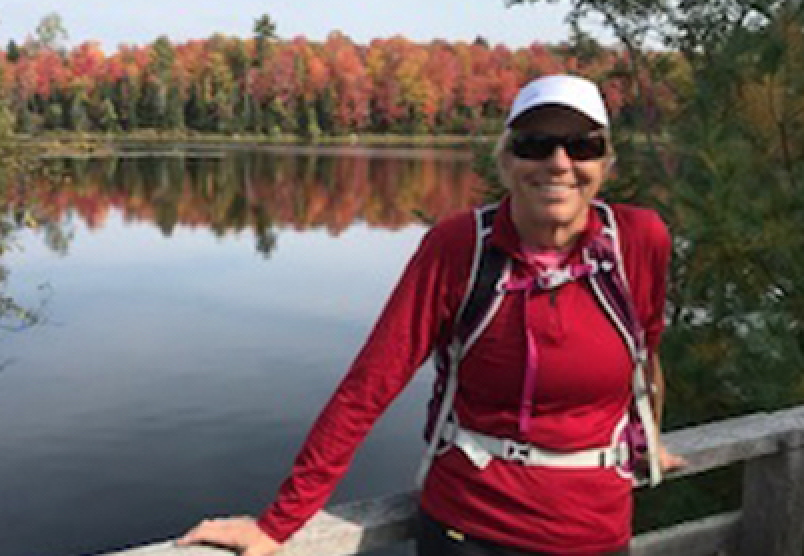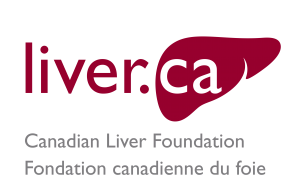Sylvie’s Story

Sylvie’s Story

In July 2018, Sylvie Breton was diagnosed with cholangiocarcinoma, a type of cancer that forms in the bile ducts.
Sylvie remembers vividly the day of her diagnosis. As an avid cyclist, she was in the midst of a training cycle, cycling about 100 kilometres a day.
“I completed most of my prior trainings on flat roads, but as we were camping in an area with several hills, it was a hot day and I didn’t feel well. During the ride it was so bad, I thought I was having a heart attack, so we went to the hospital.”
Following a series of scans, the healthcare team uncovered that she had a congenital heart malformation—but that’s not all that they found. Sylvie was told that cancer had invaded the entire left lobe of her liver.
“When I received my diagnosis I was terrified. I was healthy and active; I never imagined cancer could happen to me.” As a former pediatric nurse (who later became a lawyer), she remembered patients diagnosed with liver cancer. The prognosis was never good.
In August, Sylvie began chemotherapy, followed by surgery to remove the entire left lobe of her liver. Throughout chemo, she maintained 30-minutes of exercise a day. As she would later discover in clinical studies and scientific papers, exercise helps with recovery.
“I responded well to my treatments and was in remission from February to November 2019. In late 2019, through a routine scan, I found out that the cancer was back in two lymph nodes, but no more in the liver.”
Instead of losing hope, this second diagnosis prompted Sylvie to take control of her own treatment plan. She engaged a patient-partner role with her clinical team and the empowerment it provided her became a pivotal moment.
“In 2020 took the action of switching oncologists. I was not satisfied with the treatment option I was presented with, so I found an oncologist who was ready to explore other options.”
One of these options was to check if she had specific gene mutations. This information could pave the way to innovative treatment plans if she was open to clinical trials. As she was, it became the key to her ongoing survival.
“I believe that seeking a second opinion saved me! As of today, this decision and the fact I was willing to participate in clinical trials opened the door to international treatment possibilities. Without pushing for my own health priorities, I believe I would have gone through just the “usual care”, and… wouldn’t be here today.”
Adopting a leading role in her treatment plan brought her hope, knowledge and confidence. Over the last three years she has also become a patient-partner in research. That is how she initiated and joined a research team for a study on endoradiotherapy applied to high digestive cancer. Taking a role in her own treatments and being involved in developing new treatment options has led Sylvie to become aware of how important it is to be informed about your own health issue, the research trends and recent findings, and more. One of the issues she is strongly advocating for is the access to clinical trials as part of the treatment options, in opposition to a last resort possibility. “People can make their own choices. Sure, it’s a little longer to explain what research is all about, but in the end, it helps both patients and researchers. There’s room to grow the rate of participation in clinical trials.”
While still undergoing treatments, Sylvie pursues the passionate mission she has embraced – being a community champion for others facing a liver disease diagnosis. “I just jump and shout PRESENT whenever there’s an opportunity to share the patient-experience I’ve acquired, to demystify clinical trials, and to advocate for more research on liver cancer. The fact that it is rising, should increase research about it. What if these rare cancers are hiding some information that could solve larger issues? With cancer, you can leave no rocks unturned.”
Sylvie believes the same philosophy applies to any patient facing a liver disease or cancer. “Don’t we all seek the best contractor when we renovate our kitchen? Don’t we ask them tons of questions and seek out the best design and materials for us? It should be the same when our health is in the balance. We have to be our own advocate. Your specialists are allies, but you are the one and only owner of your health.”
Every day, liver research is shaping the next generation of treatment options for liver cancer patients. “It is our social responsibility to support research in any way we can. It is the most effective way to transform a death sentence into a survival possibility. So, if you haven’t yet donated to the Canadian Liver Foundation, PLEASE DO! If you have and continue to support the CLF, please receive my sincerest gratitude.”
To bring liver research to life, donate here.


